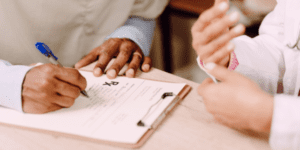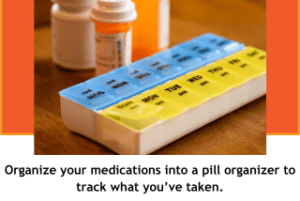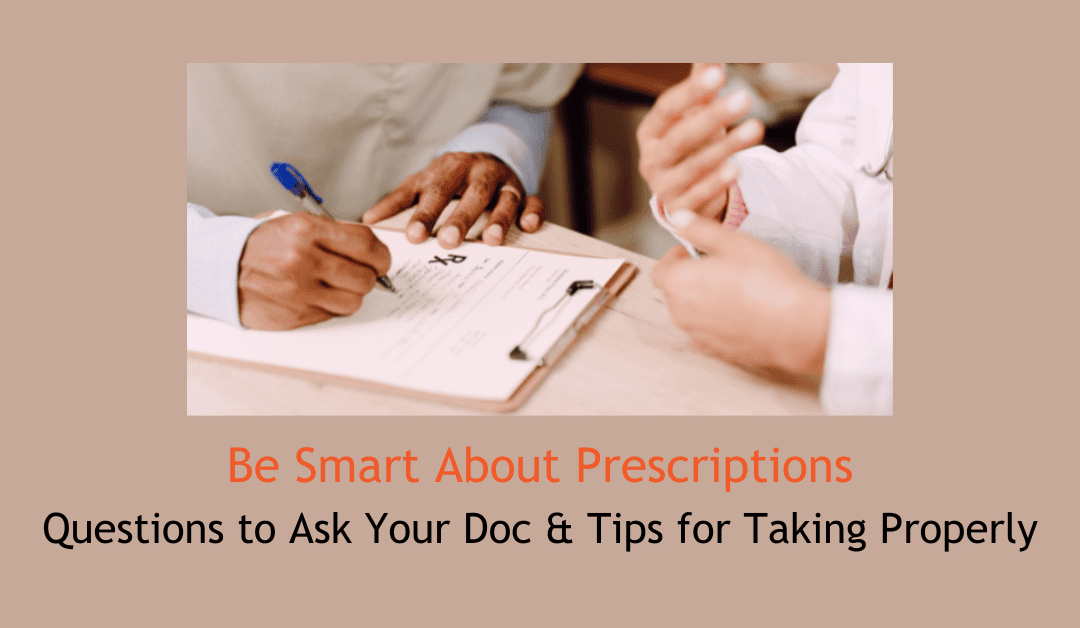Taking prescriptions as directed is crucial to getting the most benefit from your medication while keeping yourself safe. To help your healthcare providers prescribe the right medications, it’s important to share a full list of everything you’re taking, including prescription drugs, over-the-counter medications, vitamins, minerals, supplements and herbs. Many supplements and over the counter medicines can interact with prescription drugs, so being forthcoming with this information is key. Also, make sure to mention any allergies.
The first step in properly using your prescriptions is understanding them. When your healthcare provider prescribes a medication, here are some essential questions to ask if the information isn’t immediately shared:
- What is the name of the medication? Get both the brand and generic names and confirm which one you’re being prescribed.
- What is the medication for? Understand the purpose of the medication and the risks of not taking it as prescribed.
- What is the correct dosage and schedule? Ask when and how often to take it, and whether it should be taken with food or on an empty stomach.
- How long will it take to work, and how can you tell if it’s effective? Know the expected timeline for results and what to do if it doesn’t seem to work.
- Are there any interactions or restrictions while taking the medication? This includes certain foods, beverages, other medications, or activities you should avoid.
- What if you miss a dose or accidentally take too much? Find out how to handle missed doses and whether refills are necessary.
- What side effects should you watch for? Both physical and mental side effects can occur, so know what to expect and how to manage them.
- Are there specific storage or handling instructions? Some medications need refrigeration, while others should be stored at room temperature or in a certain location in your home.
Tips to Help You Remember to Take Your Medications
- Try to incorporate your medication routine into daily habits, like taking them with meals or at bedtime.
- Use technology, such as an alarm or a medication reminder app on your phone, to notify you when it’s time for your next dose.
- Consider asking a family member or caregiver to help remind you, especially for important medications.
- Organizing your medications into a pill organizer or separate containers for each day can make it easier to track what you’ve taken. Some pill organizers even come with built-in timers for added convenience.
Tips for Taking Medication
- Fill all prescriptions as instructed by your healthcare provider and be sure to follow the directions carefully. Complete the full course of medication unless your doctor advises otherwise.
- Never stop or change how you used medications to avoid potential safety risks.
- Use the patient forms in Section 1 of My Companion Guidebook (part of all Bag It Bags) to keep a detailed list of your current and past medications. Bring these lists to your doctor appointments and share them with your healthcare provider.
- Track your daily medication routine with customizable log forms in Section 2 of My Companion Guidebook (part of all Bag It Bags) to help you stay organized.
- It’s important to periodically review your medications with your healthcare provider or pharmacist, especially if you’re taking multiple prescriptions. This can help identify duplicate or unnecessary medications, or risky drug interactions.
- If you’re having trouble affording your prescription medications, Section 5 (Resources) of My Companion Guidebook (part of all Bag It Bags) lists organizations that may be able to help with financial support.
To see all of the helpful forms in the Bag It Bags, visit our Patient Page. You will also see a link to the forms in Spanish just under the Patients Forms heading.


Recent Comments